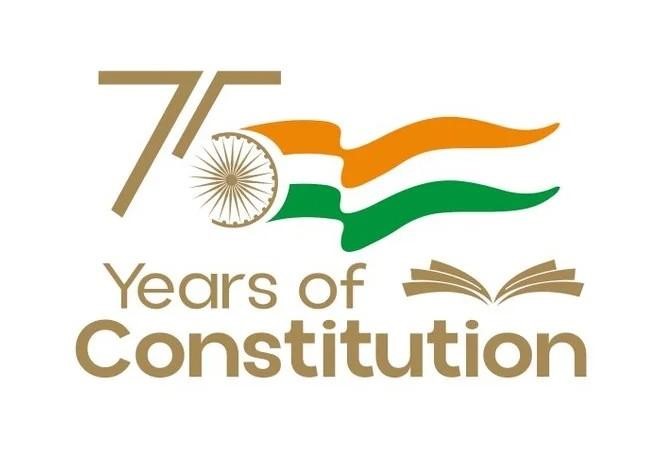75 Years of India’s Constitution: Personal Liberty Crisis
Syllabus:
GS-2:
Government Policies & Interventions , Judiciary
Focus:
India is commemorating the 75th anniversary of its Constitution. The editorial discusses the ethical challenges faced by the country regarding personal liberty, dissent, and justice. It emphasizes the need for judicial reforms to uphold the constitutional values of freedom and dignity in contemporary India.
At 75: Constitutional Justice and Personal Liberty
As India celebrates 75 years of its Constitution, this milestone is an opportune moment to reflect deeply on how its foundational values—personal liberty and human dignity—are upheld amidst contemporary challenges. The editorial highlights critical aspects of justice under the Constitution, the significance of dissent, and the role of the judiciary in protecting liberty.
Changes Made in the Indian Constitution – Key Points
- Initial Challenges:
- Lack of common nationhood and religious divisions.
- Caste reservations introduced to promote equality but debated for undermining fraternity.
- Expansion of Reservations:
- Extension of reservations beyond Scheduled Castes and Tribes to Other Backward Classes (OBCs).
- Caste Census Demand:
- The caste census demand has implications on constitutional practice.
- Impact on Unity:
- Caste-based voting has affected social unity, contrary to the Constitution’s vision.
- Shift in Power Dynamics:
- Diminishing Parliament’s power, increasing role of the judiciary.
- Ongoing Challenges:
- The erosion of social and economic equality continues to be a challenge.
- Constitution’s Ideals:
- Liberty, equality, and fraternity remain ongoing goals for the nation.
- Constituent Assembly’s Role in Drafting the Constitution:
- Formation of Assembly:
- Constituent Assembly formed under the Cabinet Mission (1946).
- First Session (1946):
- Rajendra Prasad elected President, B.N. Rau as legal advisor.
- Objective Resolution (1946):
- Nehru’s resolution outlined the philosophy of a Sovereign, Democratic Republic.
- Adoption of the Constitution:
- Adopted on 26 November 1949, came into effect on 26 January 1950 (Republic Day).
- Initial Constitution:
- 395 Articles and 8 Schedules.
- Amendments:
- 106 amendments have been made since its adoption.
Core Values of the Constitution:
Personal Liberty as a Pillar of Justice
- Personal liberty forms the cornerstone of constitutional justice and is enshrined in Article 21.
- Justice F. Nariman, in the Puttaswamy judgment (2017), emphasized that personal liberty ensures human dignity and the holistic development of individuals.
- The current socio-political climate demands a re-evaluation of how the Constitution remains “workable,” “flexible,” and “strong”, as envisioned by B.R. Ambedkar.
Challenges to Liberty in Modern Times
- Mechanistic interpretations of constitutional values risk diluting the principles of justice.
- Arbitrary arrests, preventive detention, and statutory impunity under anti-terror laws have become pervasive.
- The process itself often becomes the punishment, eroding the promise of personal liberty.
Dissent as a Constitutional Ethic:
Revisiting A.K. Gopalan vs State of Madras (1950)
- The preventive detention of K. Gopalan highlighted early constitutional contradictions, as the Supreme Court’s majority upheld his detention.
- Justice Fazl Ali’s dissent, later reaffirmed in the Puttaswamy judgment, recognized the primacy of personal liberty and dissent as constitutional ethics.
Contemporary Parallels
- The plight of anti-Citizenship Amendment Act (CAA) resisters, including Umar Khalid and Sharjeel Imam, mirrors Gopalan’s experience.
- These individuals face prolonged detentions under anti-terror laws, reflecting a continuity of challenges to dissent.
Paradox of Criminalized Dissent
- While the judiciary reinstates dissent as a constitutional value, dissenters continue to face systemic criminalization, creating a deep paradox in contemporary India.
Historical and Contemporary Context of Preventive Detention:
Gopalan’s Memoir: A Reflection of the Past
- K. Gopalan’s imprisonment, even after independence, underscores the misuse of colonial-era laws like Section 124A (sedition).
- His relentless legal battles, including multiple writ petitions and re-arrests, demonstrate the resilience required to challenge state power.
Modern-Day Resisters
- Anti-CAA protesters and other activists, such as those arrested in the Bhima Koregaon case, face similar struggles.
- Unlike Gopalan, many remain in custody without timely judicial intervention, highlighting a lack of urgency in addressing personal liberty.
Legacy of Colonial Laws
- The Preventive Detention Act (1950), a post-independence law, perpetuated colonial practices.
- Over the decades, new laws have further entrenched these practices, undermining the constitutional promise of liberty.
Judicial Responsibility and Creative Constitutionalism:
Role of the Supreme Court
- The judiciary must reflect on its role in protecting dissent and liberty, especially in the face of rising authoritarianism.
- Judgments like Puttaswamy provide a framework for upholding personal liberty as an essential constitutional value.
Need for Proactive Interventions
- Creative constitutionalism, as advocated by scholars like Upendra Baxi, is necessary to ensure that courts safeguard justice.
- Without proactive judicial action, India risks repeating past mistakes, undermining the ethical spirit of its Constitution.
The Way Forward
- Courts must ensure that personal liberty is treated as a fundamental component of justice.
- Strengthening judicial accountability and addressing procedural delays can restore faith in the justice system.
Challenges and Lessons for the Future:
Criminalization of Dissenters
- Arrests under anti-terror laws and the prolonged detention of activists reveal a systemic pattern of suppressing dissent.
- This not only violates constitutional principles but also fractures the social fabric.
Ensuring Constitutional Justice
- As India progresses, it is imperative to uphold the spirit of the Constitution by revisiting and rectifying judicial wrongs.
- Courts must serve as the guardians of justice, ensuring that laws do not contradict the values of dignity and liberty.
Preventing Future Regret
- The mistakes of the past must serve as a cautionary tale.
- Upholding personal liberty and human dignity should remain central to India’s journey towards justice, ensuring that the Constitution continues to be a living document for generations to come.
Conclusion:
The 75th anniversary of the Indian Constitution offers a critical moment for introspection. While celebrating its achievements, it is essential to address the ethical crises that challenge its core values. Dissent, personal liberty, and justice must be upheld not only in spirit but also in practice, to fulfill the Constitution’s promise of a just and equitable society.
Source: TH
Mains Practice Question:
Discuss the challenges faced by India in upholding personal liberty and human dignity under its Constitution. How can the judiciary address these challenges to ensure justice and freedom in contemporary India? (50 words)





